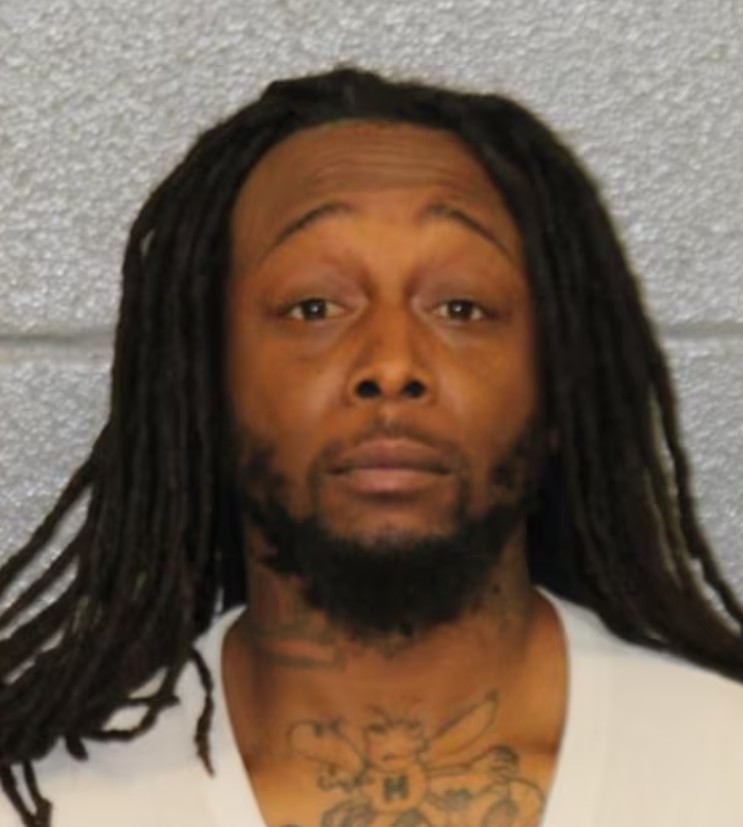Iryna Zarutska Video and The Tragic Death of Refugee
For refugees, leaving a war-torn homeland often means carrying both grief and hope. It means fleeing death, destruction, and displacement in pursuit of safety and the possibility of rebuilding life. For 23-year-old Iryna Zarutska, a Ukrainian, the United States symbolized sanctuary. Yet, in a devastating twist of fate, Zarutska’s pursuit of peace ended not with renewal, but with tragedy.

On a Friday evening in Charlotte, North Carolina, Zarutska was murdered at the South End light rail terminal. The young woman, who had already escaped bombs and shelling in Ukraine, became the victim of an entirely different form of violence urban crime. Her death has left her family shattered, her community in mourning, and the city reckoning with its broader challenges of crime, poverty, and public safety.
Contents
- 1 Iryna’s Search for a New Beginning and Video
- 2 The Fatal Night in Charlotte
- 3 The Suspect: A Symbol of Systemic Failure
- 4 The Family’s Grief and the GoFundMe Campaign
- 5 Charlotte’s Crime Problem in Context
- 6 Public Transportation: A Growing Vulnerability
- 7 From Warzone to American Streets: A Harsh Irony
Iryna’s Search for a New Beginning and Video
Relatives recall that Zarutska dreamed of a fresh start far from the horrors of war. She envisioned America as a place where she could heal, build a new future, and finally leave behind the constant threat of air raids and artillery. Her family remembered her as resilient yet hopeful a young woman who had endured hardship but still carried optimism for what lay ahead.
The unedited video of the unfortunate victim Iryna Zarutska, who died in Charlotte
“She was hoping for a new beginning,” a family member shared. For Zarutska, that meant not just physical safety but also the emotional relief of living without the sound of bombs in the background. Tragically, her hope would prove heartbreakingly short-lived.
The Fatal Night in Charlotte
On August 22, just before 10 p.m., Zarutska’s life came to a brutal end. She was at the South End light rail terminal in Charlotte when she was suddenly attacked.

According to police, Zarutska was beaten and stabbed around 9:55 p.m. Witnesses described chaos and panic as commuters fled the scene. Emergency responders arrived quickly, but Zarutska succumbed to her injuries.
Her alleged killer was identified as 34-year-old Decarlos Brown, a homeless man with a long history of run-ins with the law. Officers arrested him at the scene and later charged him with first-degree murder. Brown was taken to the hospital for non-life-threatening injuries during his arrest.
For those who knew Zarutska, the news was incomprehensible. After all she had endured in Ukraine, how could she lose her life in America the very place she thought would protect her?
The Suspect: A Symbol of Systemic Failure
The arrest of Decarlos Brown quickly drew attention to deeper systemic issues. Brown’s criminal record stretched back more than a decade, with charges including felony theft, robbery with a dangerous weapon, and making threats. Many of these cases were dismissed, leaving him free despite his repeated brushes with the law.

Brown’s circumstances highlight an intersection of problems: chronic homelessness, poverty, and a criminal justice system that has often failed to balance rehabilitation with public safety. For many in Charlotte, Brown’s story is not just about one individual it reflects the broader struggles of a city grappling with rising crime rates and visible social breakdowns.
To Zarutska’s grieving relatives, however, Brown was not a statistic. He was the man who ended the life of their daughter, niece, and friend a young refugee who had survived the bombs of one war only to fall victim to another kind of violence.
The Family’s Grief and the GoFundMe Campaign
In the aftermath of her death, Zarutska’s family was left with more than heartbreak. They also faced the financial burden of funeral expenses. To ease the strain, her aunt Valeria organized a GoFundMe campaign.
“This is an irreparable loss for her family,” the campaign description read. “We have created this fundraiser to support Valeria and her loved ones during this heartbreaking time.”
The page quickly drew contributions from friends, sympathizers, and strangers who were moved by the tragedy. For many donors, helping the family was a small way of honoring Zarutska’s memory and easing their grief.
Charlotte’s Crime Problem in Context
While Zarutska’s death shocked the community, it also underscored an uncomfortable reality: Charlotte is one of the most violent cities in America.
Statistics reveal that the city’s violent crime rate stands at 7.46 incidents per 1,000 residents. That means residents face a 1 in 134 chance of becoming a victim of violent crime. Such numbers place Charlotte in the bottom tier of U.S. cities for safety, ranking better than only 3 percent of urban areas nationwide.
This context matters, because Zarutska’s murder was not an isolated incident. It was part of a broader pattern of rising violence that has left citizens fearful and frustrated.
Local leaders, including Councilman Edwin Peacock, expressed alarm. “Right now, the trust and confidence that we do have, and most importantly, from South End to Uptown, it’s so tenuous,” he said, calling for decisive action from the city to restore safety and rebuild trust in public spaces.
Public Transportation: A Growing Vulnerability
One of the most pressing concerns following Zarutska’s death has been the vulnerability of Charlotte’s light rail system. Public transportation hubs, while vital for urban mobility, have increasingly become sites of crime and violence.
Residents have voiced fears about traveling alone at night, especially in areas like South End where Zarutska was attacked. Advocates argue that more security, surveillance, and police presence are urgently needed. Without these measures, public confidence in the transit system and the city’s image as a safe place to live and work could erode even further.
From Warzone to American Streets: A Harsh Irony
What makes Zarutska’s death especially haunting is the cruel irony it represents. She survived Russia’s relentless assaults on Ukraine bombings, shelling, and drone strikes only to lose her life in what was supposed to be a place of refuge.
Just days before her death, Ukraine had endured another barrage of Russian attacks, with over 100 drones launched into northern and eastern regions. Refugees like Zarutska prayed for peace, clinging to the hope that life abroad could offer respite.
Meanwhile, in the United States, former President Donald Trump had claimed he was working to arrange peace talks between Vladimir Putin and Volodymyr Zelensky, despite Russia’s ongoing refusal to engage. Against this backdrop of geopolitical maneuvering, Zarutska’s story became a grim reminder: even far from the battlefield, survivors remain vulnerable.
Her journey reflects a painful reality sometimes, there is no true refuge. The dangers may change shape, but they persist, whether through bombs in Ukraine or knives on American streets.
The death of Iryna Zarutska is more than an isolated crime. It is a story that highlights the fragility of life for refugees, the failures of public safety in American cities, and the enduring scars of displacement.
For her family, Zarutska’s death is an irreparable loss, the extinguishing of a young life full of promise. For Charlotte, it is yet another reminder of the urgent need to confront crime, homelessness, and the vulnerabilities of public spaces. For the world, her story symbolizes the cruel paradox faced by many refugees escaping one battlefield only to confront another.
Zarutska sought safety, but found tragedy. Her story compels us to ask difficult questions: How can host nations better protect those who seek refuge within their borders? How can communities rebuild trust in systems meant to safeguard them? And how many more lives must be lost before lasting solutions emerge?
As we remember Iryna, the call is clear: her life should not be defined solely by its tragic end, but by the lessons it leaves behind. She reminds us of the cost of neglecting both the vulnerable and the systems meant to protect them and of the urgent need for compassion, reform, and justice.
Breaking News -Obdulia Sanchez Video and the Story of Love with Loss
Funky Town Gore Video and Internet’s Darkest Viral Clip
Rampage Jackson Son Raja Jackson Fight Video and Syko Stu
Freddy Mireles Video and The Death of Julio César Soto Jr.
Man Defends Wife from 5 Women Original Full Video vs Husband
Osamason and Yuri Video and Online Phenomenon
Paris Harvey Video and St. Louis Teen Death on Livestream
